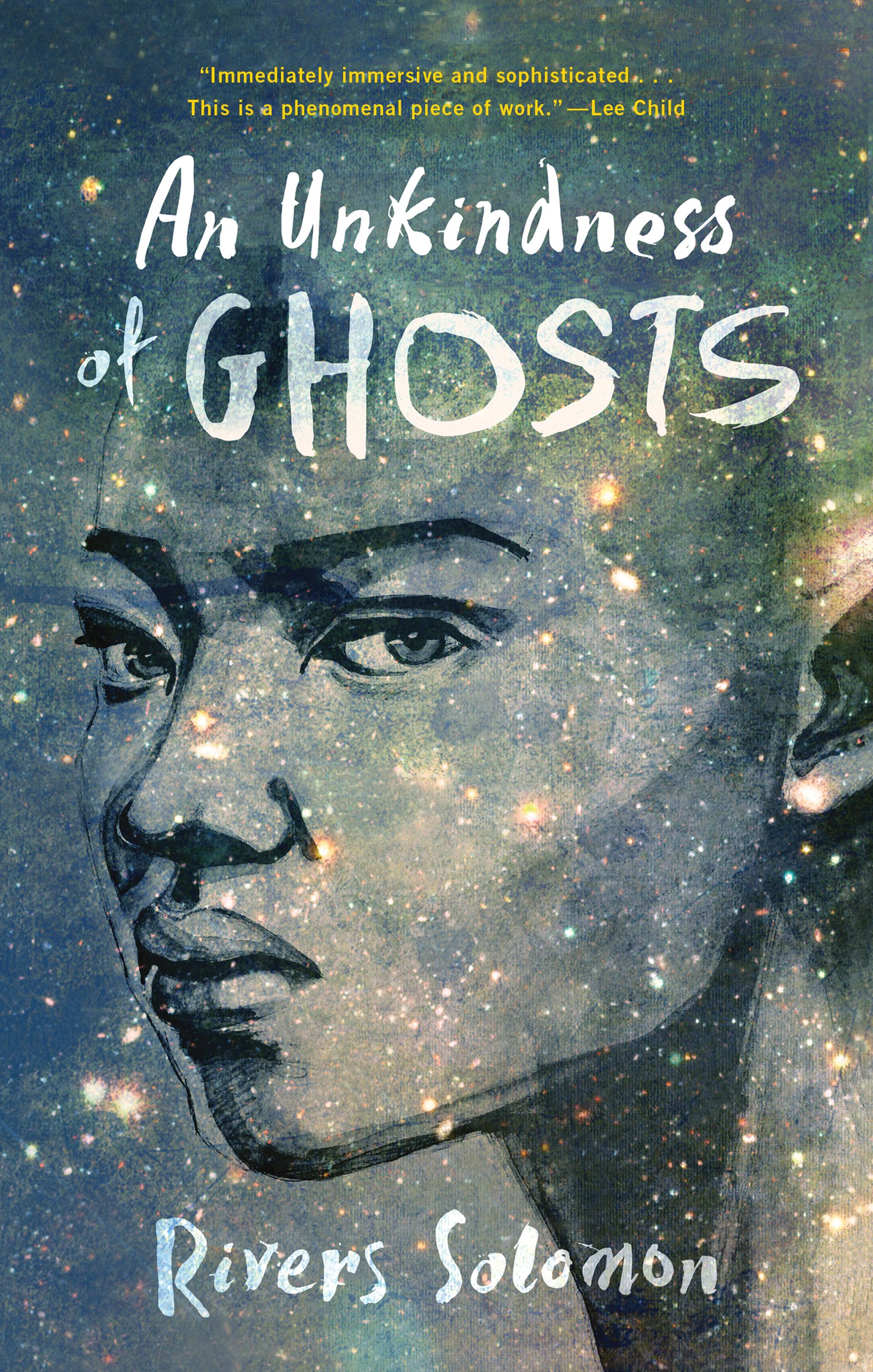As of my writing this, it's less than a week to go before the Hugo voting cut-off, and I only have one book that I need to finish. And a couple of graphic novels, but I'm hoping those won't take too long. After that, I'll be able to get back to my regular reading for a while, and I'm looking forward to that. However, I have enjoyed the last few months and the frantic attempt to read all the Hugo nominees, and I'm looking forward to doing it again next year!
With that, I come to one of the last few Campbell Award nominees' works that I had to read. I had heard amazing praise of Rivers Solomon's An Unkindness of Ghosts and so I was both looking forward to it, and a little trepidatious, having paid attention to people saying it was a difficult and powerful read.
I think this might have been better had I not heard the hype. I did like it, I was moved and troubled by it, but there's a level at which I'm not sure anything short of a masterpiece could have lived up to the expectations. This didn't feel like that, but it's an amazing first novel, it is powerful, urgent, and deserves to be read, and I wish Rivers Solomon a long and successful career. I look forward to reading more of their work.
So, trying to put expectations so high it would be nearly impossible to meet them aside, what do we have in An Unkindess of Ghosts? We have a book that does not pull its punches - it is about plantation slavery on a generation ship, divided on racial lines. All of the horrors we know about plantation slavery in the Southern United States are enacted on these people who have never known any life but the ship, who have been on the ship for generations, while the white people on the upper decks live lives of wealth and leisure.
It is also the story of a neurodiverse narrator, who does not approach human interaction in the way that most people do, which seems to be both something she was born with, and altered in significant ways by the trauma she's experienced. On top of that, the narrator, and many of the characters, whether explicitly said, may be intersex, or at least the main character says at one point that on her deck, many people have...oh, shoot. It's a medical term (she's in training to be a doctor) that escapes me, but gender is not clear here, and at the beginning of the book, it's clear that different decks have different conventions for pronouns for gendering children and later, for adults.
Gender is there, a background and occasional forgrounded thing, and its woven well into the story of Aster as she lives as a slave, but with occasional moments of privilege because she is the, well, she's not sure what she is to Theo, the Surgeon General, and part of the book is the two of them negotiating desire, belief, privilege and distance in a world that is much more dangerous for Aster, although not toothless for Theo.
Add to that, there is the death of the man who is more or less a king (gender roles for the upper decks people seem to be as patriarchal as they are racist), which ties in in weird ways to the death of Aster's mother, who left behind coded journals Aster is just learning how to read.
There is, of course, much more to this story, a lot of cruelty, moments of respite, and the question of where the ship is going and if it will ever get there - and if the powerful care. The bad guys are irrevocably bad, for the most part, but I don't feel like there's any obligation to humanize slavers. I'm good with the story being firmly rooted with the enslaved, and what the ongoing institutional and very real violence does to people. It's a difficult book, it's a very good book, and I'm very glad I read it.

No comments:
Post a Comment